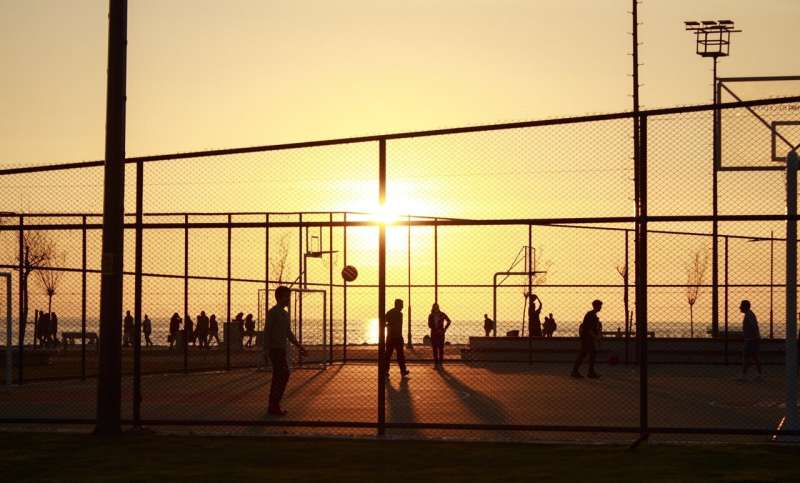This article has been reviewed according to Science X's editorial process and policies. Editors have highlighted the following attributes while ensuring the content's credibility:
fact-checked
peer-reviewed publication
trusted source
proofread
Difficult teens can benefit from sport

A new study has found that high levels of physical activity in early adolescence can reduce depressive symptoms in young people who have difficult temperaments, come from low-income families or are exposed to family dysfunction.
However, these positive effects in teens transitioning from elementary to high school appear only under certain conditions and vary with factors such as the intensity and context of the activity, according to the study.
Completed by researchers at Université de Montréal, the study was published in January in the Journal of Early Adolescence.
Social context is important
In adolescents with difficult temperaments (i.e., who find it harder to deal with new situations and are more likely to exhibit maladaptive emotional and behavioral responses), low levels of physical activity are associated with increased symptoms of anxiety, the researchers found.
In teens from dysfunctional families (for example, those who have trouble communicating or solving problems), high levels of physical activity are associated with increased aggressivity, according to the study.
"In all cases, the social context of sport is very important," said lead author Fatima Alawie, a doctoral student supervised by UdeM professors Véronique Dupéré (School of Psychoeducation) and Elizabeth Olivier (Department of Psychopedagogy and Andragogy).
For young people with difficult temperaments, who often have more difficulty integrating into society, physical activity is important as a way to promote their social skills.
Those dealing with family difficulties and lacking enough parental presence are more likely to transfer the aggressivity sometimes displayed in sport to other life situations. "In their case it is important that the physical activity be supervised by an adult to avoid escalation into deviant behavior," Alawie said.
Need to consider downsides
In her view, the association between physical activity and aggressivity in young people exposed to poor family functioning underscores the need to consider the potential downsides of sport and, most importantly, the context in which it is offered.
"It is clear that physical activity has general benefits and should be promoted to parents and schools," Alawie said.
"However, it can also have harmful effects for certain segments of society when the sporting culture is focused on performance and competition."
That's why it's important that the sporting environment value perseverance, cooperation and striving for personal bests, particularly when the family environment is not ideal, she said.
More information: Fatima Alawie et al, Can Physical Activity Protect Young Adolescents With Difficult Temperaments and Exposed to Family Adversity From Internalizing and Externalizing Problems? Yes, But…, The Journal of Early Adolescence (2024). DOI: 10.1177/02724316231224812




















